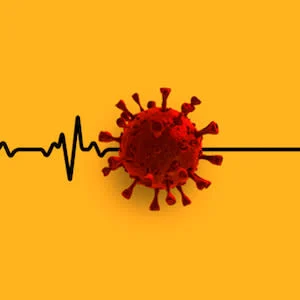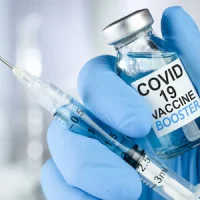A study published in Cardiovascular Research found that COVID-19 is associated with a higher risk of cardiovascular disease and death in both the short and long term. In the first three weeks of infection, the likelihood of COVID-19 patients dying was up to 81 times higher than uninfected individuals and remained five times higher up to 18 months later.
The study author, Professor Ian C.K. Wong, suggests that COVID-19 patients should be monitored for at least a year after recovering from acute illness to diagnose cardiovascular complications of the infection.
The study compared the incidence of cardiovascular disease and death in COVID-19-infected individuals and uninfected individuals in the UK before December 2020, when no vaccines were available. More than 7,500 COVID-19 patients were identified from UK Biobank and matched with up to 10 uninfected individuals of similar demographics. The average age was 66 years, with nearly equal numbers of women and men in all three groups. The study found that COVID-19 patients were at higher risk of cardiovascular disease and death than uninfected individuals.
The study used medical and death records to assess the occurrence of cardiovascular disease and death in COVID-19-infected and uninfected individuals. The outcomes evaluated were major cardiovascular disease, various cardiovascular conditions, death from cardiovascular disease, and all-cause death. The associations were assessed during the acute phase (within 21 days of COVID-19 diagnosis) and the post-acute phase (from 22 days after diagnosis to 18 months).
According to the study, COVID-19 patients were four times more likely to develop major cardiovascular disease and 40% more likely in the post-acute phase than uninfected individuals. The risk of death in COVID-19 patients was up to 81 times higher in the acute phase and five times higher in the post-acute phase. Severe COVID-19 cases were found to have a higher likelihood of developing major cardiovascular disease or death than non-severe cases.
COVID-19 patients have a higher risk of developing various cardiovascular conditions, both in the short and long term, compared to uninfected individuals, according to the study. This includes myocardial infarction, coronary heart disease, heart failure, and deep vein thrombosis. In addition, the risks of some conditions, such as stroke and atrial fibrillation, were elevated in the short term but returned to normal levels.
Prof Wong suggests that future research should examine the impact of COVID-19 outbreaks and investigate the effectiveness of COVID-19 vaccination in reducing the risks of cardiovascular disease and death.
Source: ESC
Image Credit: iStock
Latest Articles
cardiovascular disease, COVID-19, Long COVID
COVID-19 Associated with Higher Risks of Cardiovascular Disease










